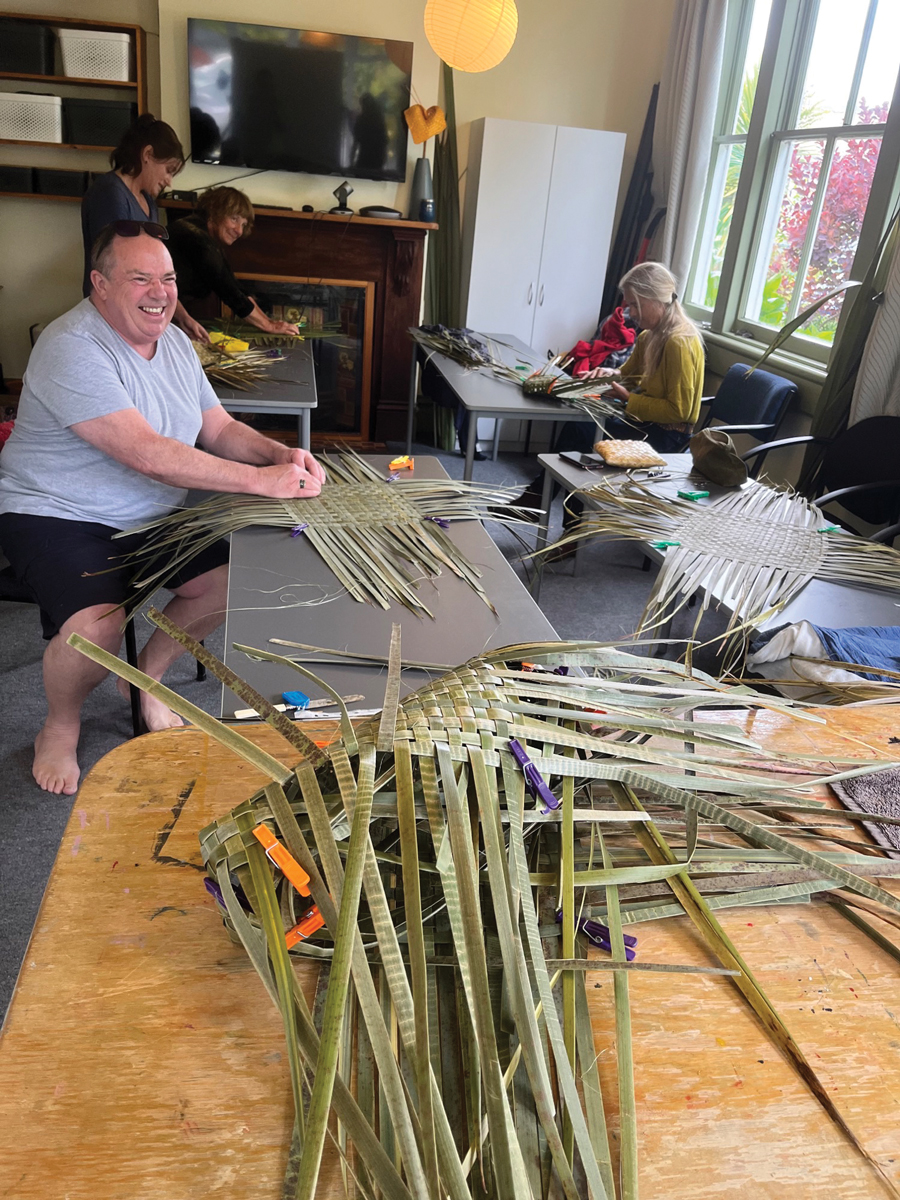
In 2010, when government funding to schools providing ACE stopped, Collingwood Area School in Golden Bay, like most schools throughout the country, closed down their ACE programme. Now, out of the original 212 ACE-funded schools, only 17 are left.
But two years ago a small ACE programme returned to this rural community at the Top of the South. It’s being delivered by the Golden Bay Workcentre Trust.
The trust has a long history of community development. In 1979 a group of women with young children decided they wanted to work together and generate a small income for themselves. Within a couple of years they were successful in starting up a small business making sheep skin slippers.
As a result, in 1981, the Workcentre Trust was incorporated, and they bought an old house in the centre of Tākaka.
For a few years the trust was able to provide some community education classes by getting grants from Community Learning Aotearoa NZ (CLANZ), a government organisation which, from 1989–2003, provided small scale funding to a number of community groups that could not otherwise get support for ACE programmes.
Today the Workcentre Trust has four business arms: they are a landlord – the large house now has 18 community groups as tenants; they have contracts with MSD and the Ministry of Youth Development to provide a range of services including employment programmes, youth, mentoring and Heartland services; they facilitate community development initiatives; and, with the support of a small grant, they have the new ACE programme.
The first year was 2021.
When the trust let it be known on the community Facebook page that ACE courses were coming, many people were quick to make suggestions. In the end, says Alli Gardener who is the part-time ACE co-ordinator, they selected courses for which they knew they could get a skilled tutor.
The programme was advertised in the Golden Bay Weekly, on the trust’s website and the Golden Bay Community Facebook page. Enrolments came in quickly and within a short time all the courses were filled.
They ran eight courses that year: Staying Connected (learning what you can do online), pottery, art, writing for pleasure or publication, and raranga harakeke. All the courses involved 18–21 hours of teaching time and cost the learner between $65–$70 plus materials. The trust paid for the materials if people could not afford the extra cost.
The pottery course was restricted to seven people and ran twice. Over the year 49 people came to the ACE programmes.
This year the timetable is also strong on art, ceramics, clay-making, and harakeke raranga – with some more advanced classes now available. There have also been courses for people wanting to learn more IT skills, and how to manage your own business at home.
There was a community forum workshop called A Beginners Guide to Death and Dying. Alli arranged speakers from the Public Trust, a law firm, a bank, palliative care, the hospice, a funeral services and home nurses.
In the first year most of the participants were over 50. In the second year the age group shifted to a more middle-aged group. Alli thinks this is because people in these age groups are often the ones who have time during the day – and when the trust was working out what and when to deliver programmes, daytime was the preferred option.
Over both years participation by Māori and Pasifika has been low – which reflects the population profile: just eight percent of Golden Bay residents are Māori and one percent are Pasifika. Still, Alli is keen to increase participation by these groups and if the Golden Bay Workcentre is successful in securing funds to offer community classes during 2023, they will be talking with Te Ataarangi, Manawhenua ki Mohua and Kind Mind Kai to help get ideas for classes that will attract and increase Māori and Pasifika participation throughout the year.
Alli Gardener is also responsible for facilitating the trust’s community development initiatives, including community research – a real advantage when it comes to identifying learning needs. She has been at the trust for nearly 30 years, a lot of the time as manager so she is well connected into the community. She also is able to assess the value of the programme to the community.
“The purpose of the project was to build resilience and strengthen our social fabric. ACE was always very popular in the past. At a very basic level it brings people together, people make friendships, work together and learn stuff. It is very, very fundamental community building.
“In this respect the programme has been a resounding success. People came together and enjoyed learning new skills, meeting new people, sharing their stories and making connections within the community. They all want to be kept informed about future courses. Some of the participants came to the Workcentre Trust and community hub for the first time and learned about other programmes and resources.
“Becoming friends, breaking down social barriers and social divides contributes in no small way to the strengthening of the social fabric. This may have been a small-scale project, however, it has made a big scale impact. This small ‘taster’ of courses has been of great value to the community.”
